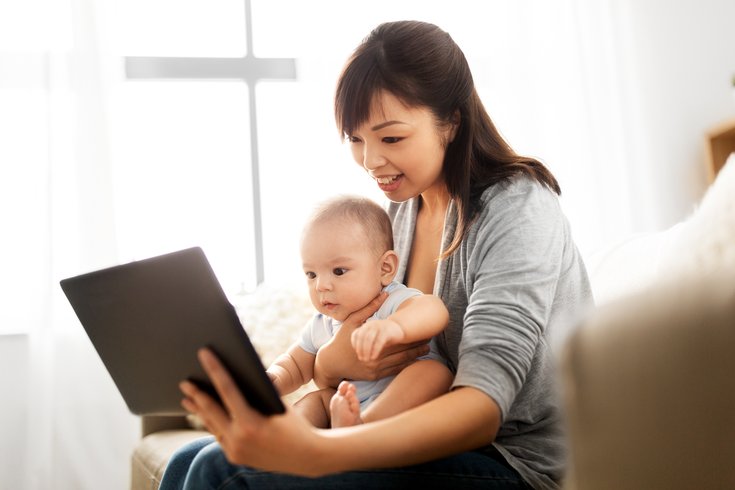
January 12, 2024
 Source/Image licensed from Ingram Image
Source/Image licensed from Ingram Image
Children who have been exposed to screen time by their first birthdays are more likely to exhibit high sensory behaviors at 33 months old, a new study from Drexel University researchers finds.
Early exposure to TV and other forms of screen time can have a profound impact on infants and toddlers, according to a new study conducted by Drexel University researchers.
The study found that young children who got more screen time were more likely to have sensory issues like feeling overwhelmed by noises and bright lights, being disinterested in activities and seeking more intense stimulation.
Children who had been exposed to screen time by their first birthdays were 105% more likely to exhibit high sensory behaviors at 33 months old, researchers found. When children were 18 months old, every additional hour of daily screen time increased their likelihood for high sensory behaviors by 23%. At 24 months old, each hour increased that likelihood by 20%.
The study's findings may have implications for people with attention-deficit/hyperactivity disorder and autism, because atypical sensory processing is more common among them, according to Karen Heffler, the study's lead author.
"Repetitive behavior, such as that seen in autism spectrum disorder, is highly correlated with atypical sensory processing," said Heffler, an associate professor of psychiatry. "Future (research) may determine whether early life screen time could fuel the sensory brain hyperconnectivity seen in autism spectrum disorders, such as heightened brain responses to sensory stimulation.”
The study adds to research that has linked screen time among infants and toddlers to language delays, behavioral issues, sleep struggles, delays in problem-solving and autism. Research published in August found that 1-year-olds who watched 1-4 hours of screen time each day had developmental delays in problem solving, fine motor skills and communication.
According to the Mayo Clinic, children under age of 2 are more likely to learn from interactions with their parents, siblings and others than from screen time. At 2, children may benefit from some forms of screen time, including programs with music, movement or stories. But the health system recommends parents watch the programs with their kids to help them better understand what they're watching.
The American Academy of Pediatrics recommends against exposing children under 18 months to screen time, except for video chatting. Some screen time is OK for children 18 to 24 months, but the AAP says it should be high quality and not be viewed alone.
The Drexel study examined data from 1,471 children who were part of the National Children's study from 2011 to 2014. The study asked parents to document the screen time their children had received at 12, 18 and 24 months of age. When the children turned 33 months old – just shy of 3 years – their sensory processing abilities were tested using an exam that looks for patterns like excessively touching or smelling objects, light sensitivity, noise sensitivity and avoiding sensations such as teeth-brushing.